
5G AND AI ARE ALREADY LOOKING AT 6G, ON THE FOURTH DAY OF THE ‘5G FORUM 2023’
- Elena Puigrefagut, Senior Project Manager of the European Broadcasting Union, presented the ‘5G Broadcast’ and ‘5G Emerge’ projects.
- On behalf of RTVE, Urbano García Alonso, Director of Innovation and Digital; and Pere Vila, Director of Technological Strategy, spoke about Artificial Intelligence, “a great opportunity” that “presents a major challenge”.
- Carles Antón-Haro, Governing Board Member of 6G-IA, considers that “Europe must play a leading role in the development of 6G”.
The last of the virtual sessions of the ‘5G Forum 23’ was a highlight for associations, universities and companies whose priorities include 5G technology. The European Broadcasting Union (EBU), 5G MAG, RTVE, UHD Spain, the University of Malaga, Mobile World Capital Barcelona, 6G-IA and 5G Americas have put the finishing touch to the presentations of the sixth edition of the 5G Forum.
The EBU, 5G and Broadcasting
Elena Puigrefagut, Senior Project Manager of the European Broadcasting Union (EBU), presented several innovative projects. One of them is the 5G Broadcast, which “although it uses 3GPP technology, is a broadcasting system for broadcast network operators on broadcasting service frequencies.” “This system does not need a unidirectional network,” he says. “So much so, that in the Eurovision Song Contest, whose organizer was RAI, they took advantage of it to use 5G Broadcast in the retransmission.”
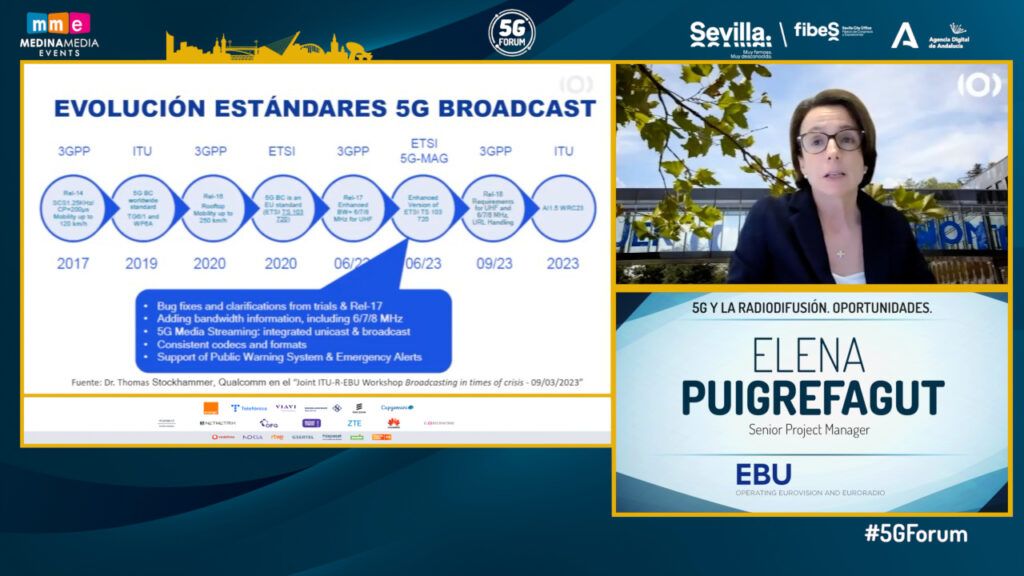
Another project is 5G Emerge, which aims to “develop an integrated satellite and terrestrial system, based on open standards, to enable high-quality content distribution services.” This project, as Puigrefagut states, “is developing an intelligent way to distribute multimedia content to a range of terminals.”
5G Multimedia Services in Action
Jordi J. Giménez, Chief Technology Officer of 5G-MAG, talked about 5G multimedia services in action. “One of the pillars of work in 5G-MAG is the 5G Broadcast. This is a Standard Broadcast that works with mobile technology in order to transmit audiovisual, radio or TV content to cell phones or any connected device.”
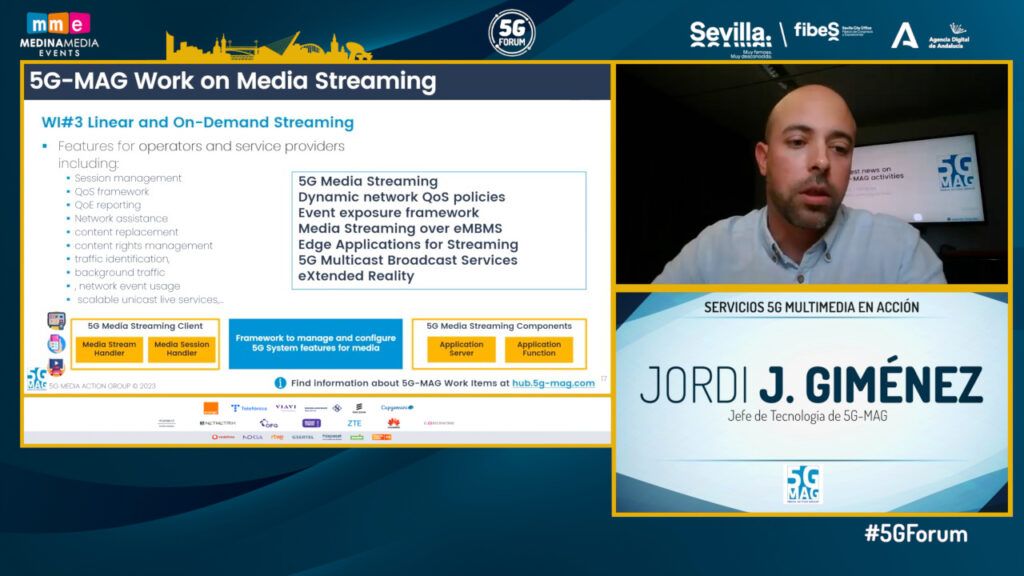
Giménez wanted to emphasize the 5G-MAG Reference Tools. “We saw that the standards were there but there was a lack of a development community for those standards, so that it is possible to evaluate how the technology works.” That is why from the 5G-MAG they decided to “launch an open source software activity to implement certain technologies.”
RTVE, Artificial Intelligence and UHD Spain, in the ‘5G Forum 2023’.
The Spanish Public Broadcasting has been present in this sixth edition of the 5G Forum. The Director of Innovation and Digital, Urbano García Alonso, has shown how is the positioning of RTVE facing the challenge of 5G and Artificial Intelligence. “In 2022, 4G reached almost 100% of the population, while 82% (23% more than in 2021) have access to 5G solutions“.
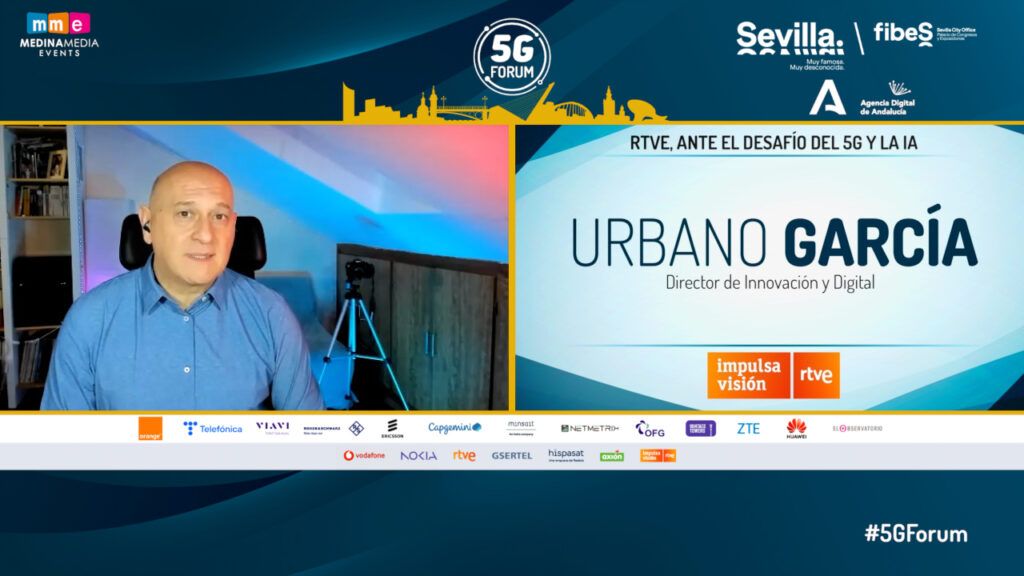
“We hope to enjoy 5G ‘for real’. We want a contribution to multimedia distribution, to reduce the territorial gap and to be able to move away from experiments reduced to sets or small environments”. Regarding Artificial Intelligence, García Alonso’s position is clear: “it is an important challenge but also a great opportunity. Along with AI, there must be human intelligence to control it”.
On the other hand, Pere Vila, Director of Technology Strategy, has been the other representative of RTVE: “We are working with Artificial Intelligence issues, which at some point we will link it to 5G. We are waiting for 5G to be deployed and we will be able to combine both things”.
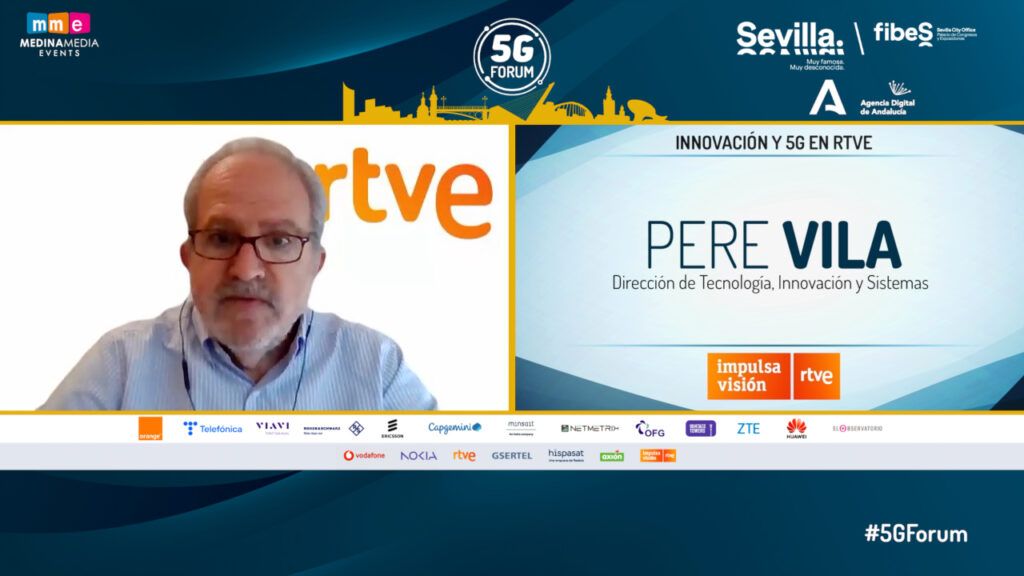
“By the end of the month we want to produce audiovisual content for populations of less than 1,000 inhabitants, which are about 4,600 in Spain. We intend to include images, texts, headlines and voice to narrate, both on web and ‘Alexa’.”
Pere Vila himself also spoke as President of UHD Spain. He spoke about the importance of 5G for the Association this year: “This year we will focus on 5G. The idea is to test production and broadcasting using 5G technology. The aim of these tests is to “be able to see how the camera output, the infrastructure or the 4K mixer in the cloud works”.
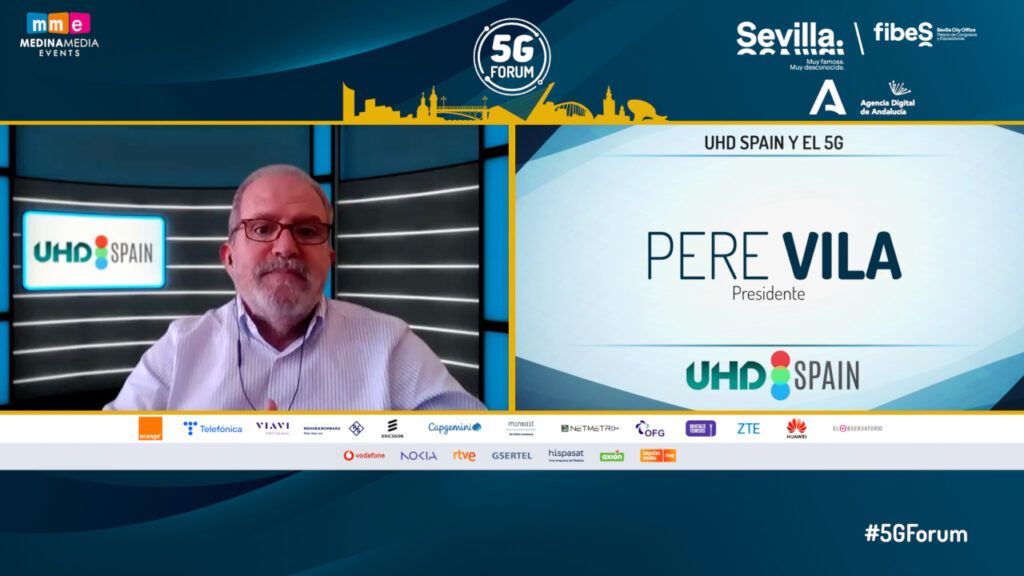
5G is already looking at 6G
Although 5G is still settling in, technology is advancing by leaps and bounds and, inevitably, we are already starting to look towards 6G. Pedro Merino, Professor at the University of Malaga, spoke about advanced 5G and 6G. “The Victoria Network is already operational in a part of the UMA campus. Our intention is to cover different areas of the province of Malaga, many of them are already covered.”
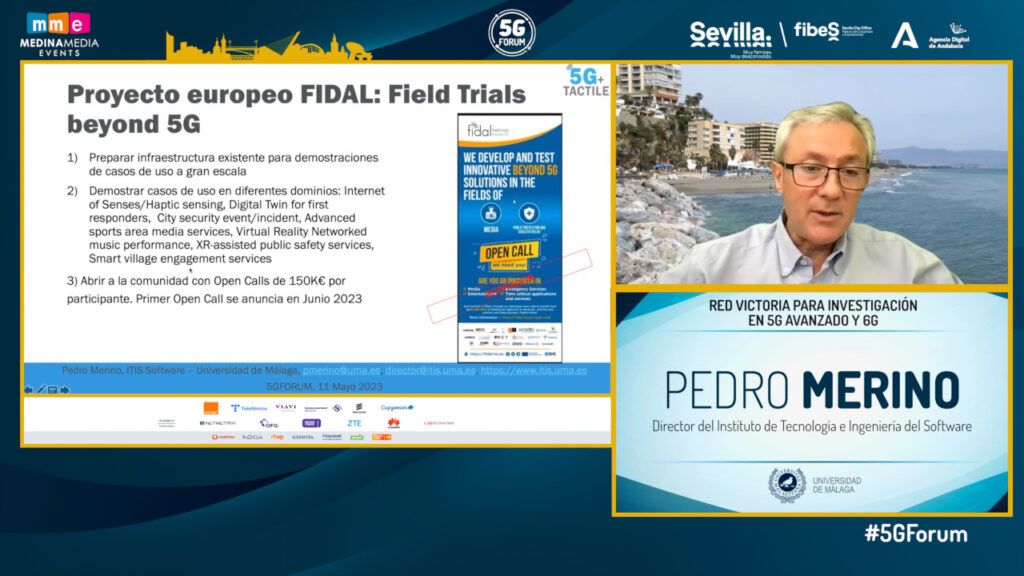
Thanks to this network, different projects have emerged. One of them is “the 5G+Tactile, which is about tactile internet in 5G and 6G”. “Tactile internet is the ability for a human or a machine to remotely control some equipment.” However, as Merino himself states, “this is not implementable in 5G, but needs an advanced 5G“.
On the other hand, Carles Antón-Haro, Governing Board Member of 6G-IA, has shown the key strategies for the development of 6G. “We have the need to talk with the European Commission to reflect the continent’s strategy for it to have a leading role in these networks, which will incorporate Artificial Intelligence.”
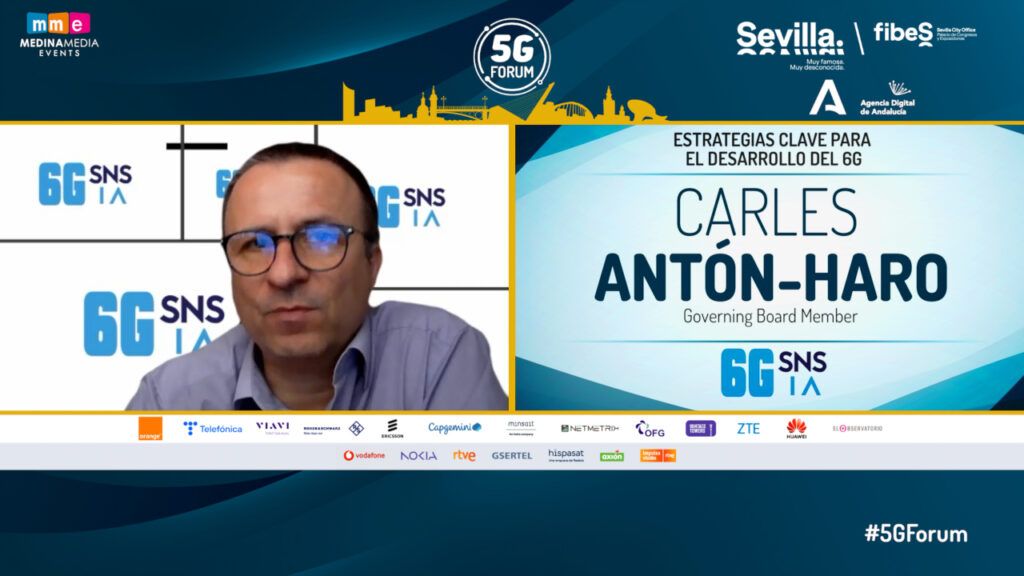
“In terms of sustainability objectives at the 6G level, in Spain we are doing very well. We have a very active and prominent participation in 6G designs and sustainable technologies. However, we want to continue working until 2030.”
Highlights of the Mobile World Congress 2023, at the 5G Forum
Eduard Martín, CIO and director of the Smart Connectivity Program at Mobile World Capital Barcelona, has been in charge of recounting the most interesting aspects that took place at Mobile World Congress 2023. “We have seen the momentum on 5G networks. Despite the fact that deployments are not yet finished, it is time to talk about new services. We need 5G SA implementation to translate it into services. For example, in the healthcare sector, it is very important”.
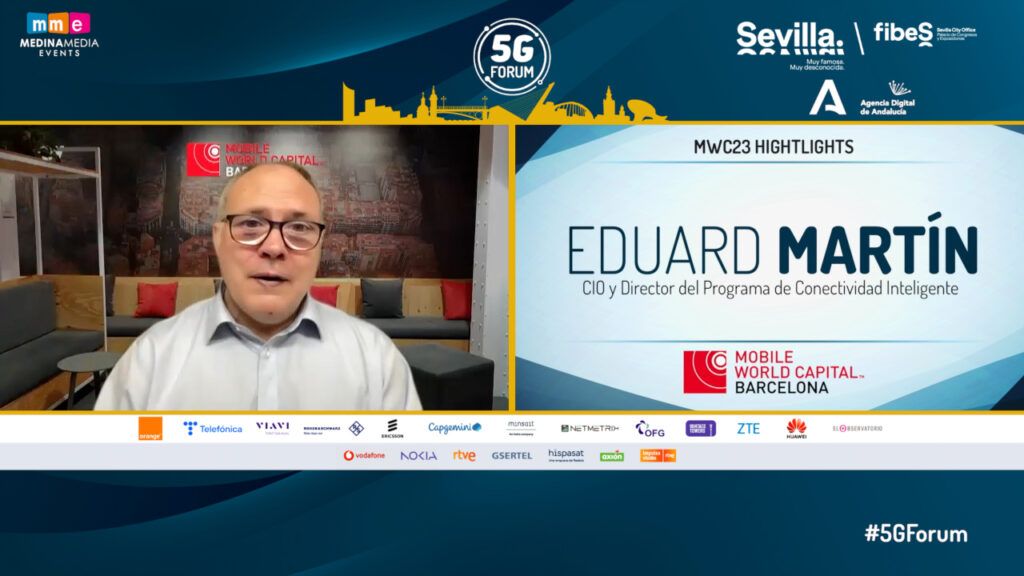
He also highlighted another concept that has been very present in today’s conference: Artificial Intelligence. “Just as the Internet did, it is here to stay, that’s for sure. There is regulation and European reports are being drawn up. Spain is one of the pioneers in this”.
Challenges and opportunities of 5G in Latin America.
José F. Otero, Vice President of 5G Americas, has moved the situation that 5G is going through in the American continent, which is greatly affected by the situation of poverty that many places in the continent are going through. “5G developments in Latin America at the moment are quite limited. For it to become adapted to 30 or 40 % of the population, the price of the phone must be at $125. If we want it to exceed 50 or 60%, in many markets it would have to be $50 or $60. Even though we have big announcements of 5G services, there are really only a few markets where we are seeing growth.
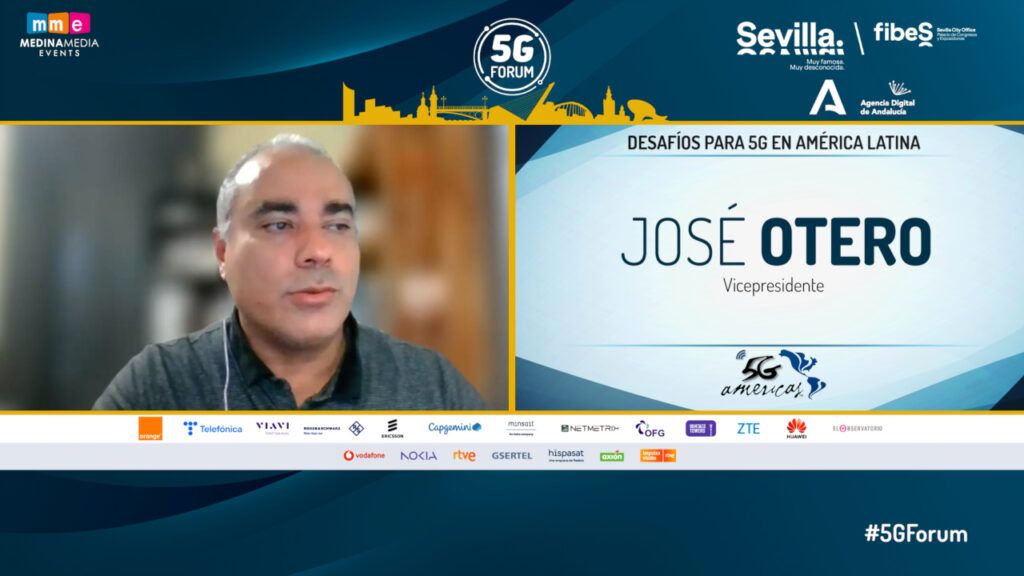
These sessions and all those that have taken place in this sixth edition of the 5G Forum, are available in ‘The Observatory’, a platform launched by Medina Media Events, where they can be enjoyed throughout the year, in addition to connecting with speakers and attendees, and being informed of the latest news 24 hours a day, 365 days a year.
The sixth edition of the 5G Forum is promoted by Sevilla City Office and Fibes, and has the support of Junta de Andalucía and the Digital Agency of Andalusia, as well as Orange, Telefónica, Viavi Solutions, Ericsson, Capgemini, Rohde & Schwarz, Minsait, Netmetrix, OFG, ZTE, Huawei, Vantage Towers, Vodafone, Nokia, Gsertel, Hispasat, Axión and Impulsa Visión RTVE, among others.